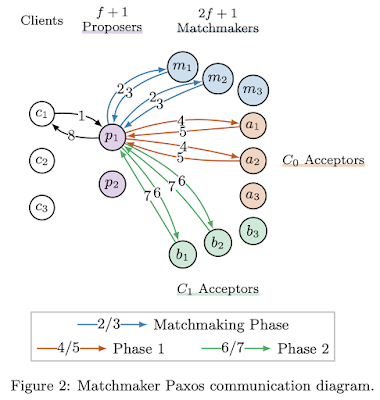Matchmaker Paxos: A Reconfigurable Consensus Protocol

Michael Whittaker , Joe Hellerstein's PhD student at UC Berkeley, has recently defended his PhD thesis on Compartmentalized Paxos . The thesis deconstructs Paxos and shows ways to reconstruct it to be more scalable by individually focusing on each component/role in Paxos. It is a simple but effective trick. Even after you learn the trick, you still keep getting surprised by how effective it is. When I say Michael defended his thesis, I am speaking loosely. Michael was not defensive about anything. He didn't have to be, his work spoke for him. Just watch his PhD presentation and you will understand what I mean. Michael has a great talent for explaining things simply. Unfortunately this is an underappreciated talent, especially in academia. This may make it look too easy and effortless, and like you didn't do sophisticated work. This dude did not even prepare presentation slides for his PhD thesis (the heresy!), and winged it on the fly by drawing his protocols on an iPad. H







